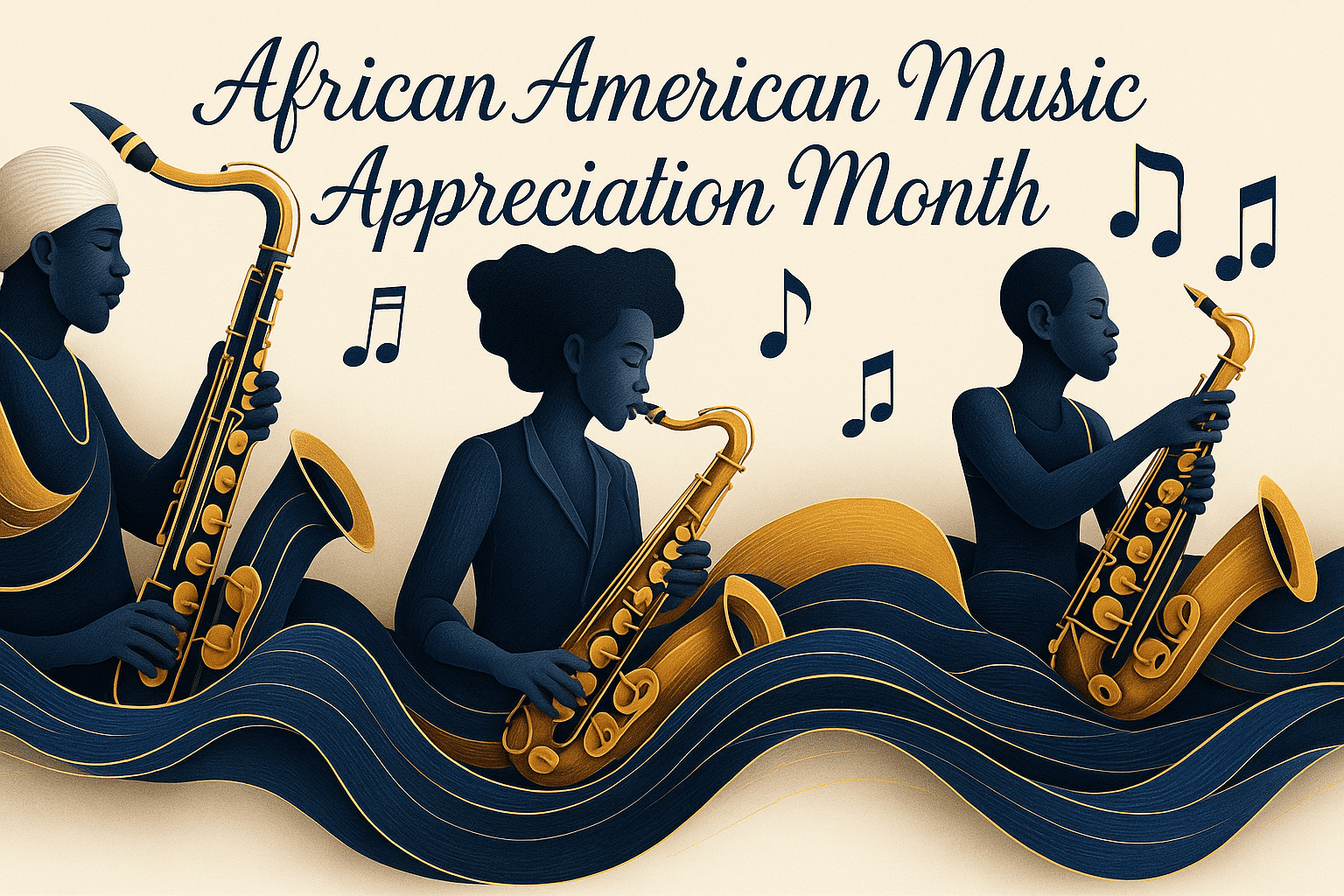What is African American Music Appreciation Month?
African American Music Appreciation Month is observed every year in June in the United States. The month honors the contributions of Black musicians, composers, and performers across all genres. From jazz and gospel to hip-hop, blues, and classical music, the influence of African American artists is felt in every corner of American music history.
This observance is more than a celebration of sound. It is a recognition of resilience, creativity, and cultural expression. African American music has often grown out of struggle and resistance. It has also been a space for joy, protest, spirituality, and identity. This month invites listeners to learn, reflect, and appreciate the roots of the music they love.
History and Origin
African American Music Appreciation Month was first established in 1979 by President Jimmy Carter under the original name “Black Music Month.” The goal was to acknowledge the impact of Black musicians and to preserve the legacy of their work. In 2009, President Barack Obama gave the month its current name and emphasized its role in shaping American identity.
The origins of African American music go back to spirituals and work songs of enslaved people. Over time, these forms evolved into blues, jazz, soul, funk, R&B, and rap. Each style carries its own story, but they are all linked by common threads: rhythm, storytelling, and the power of voice.
Throughout history, African American artists have shaped musical trends around the world. From Louis Armstrong to Aretha Franklin, from James Brown to Kendrick Lamar, the music continues to evolve. The month gives space to revisit these legacies and to explore the sounds shaping tomorrow.
Who participates in African American Music Appreciation Month?
- Musicians and performers: Share music inspired by or rooted in Black traditions.
- Educators and students: Study the history of African American music in school programs.
- Radio and media outlets: Highlight Black artists and feature themed programming.
- Libraries and museums: Offer exhibits and archives that trace music’s cultural impact.
- Fans and listeners: Create playlists, attend concerts, and support Black musicians.
Slogans and Themes
Slogans include “Celebrate the Sound of Freedom,” “Black Music, American Legacy,” and “The Beat of a Nation.” Themes focus on innovation, identity, and the lasting cultural power of African American music. Some years may emphasize specific genres or spotlight lesser-known pioneers.
Colors, Symbols, and Patterns
Colors
- Black: Represents pride and power.
- Gold: Honors excellence and musical achievement.
- Red and green: Often used to reflect cultural roots and African heritage.
Symbols
- Musical notes and instruments: Highlight jazz horns, turntables, or drum kits.
- Microphones: Represent voice, message, and performance.
- Vinyl records and mixtapes: Evoke history, nostalgia, and the evolution of music.
Patterns
- Soundwaves and rhythms: Used in visual art to show movement and pulse.
- Cultural motifs: Drawn from African and African American textile and visual traditions.
- Street murals and graffiti art: Celebrate modern and historical musical icons.
Most Used Hashtags
- #BlackMusicMonth
- #AfricanAmericanMusicAppreciationMonth
- #CelebrateBlackMusic
- #BlackMusicMatters
- #SoundsOfFreedom
How do you celebrate African American Music Appreciation Month?
- Explore new genres: Listen to music you don’t normally hear, from gospel to go-go.
- Attend live performances: Support Black artists at concerts, clubs, or festivals.
- Learn the history: Watch documentaries or read about the roots of hip-hop, jazz, and more.
- Share music: Make a playlist of favorite songs and pass it on to friends or family.
- Support Black creators: Buy music, merchandise, and albums from independent artists.
Why is African American Music Appreciation Month important?
This month honors not just music, but the people and stories behind it. It reminds us how African American artists have shaped America’s sound and influenced global music. These contributions deserve recognition, not just for their artistry, but for the cultural history they represent.
African American music tells stories of resistance, faith, protest, and pride. It brings communities together. It teaches and it heals. Celebrating this music means celebrating the people who made it and the path they carved for others to follow. From gospel choirs to hip-hop collectives, the legacy continues.
Features
June: African American Music Appreciation Month
Why do you keep falling for the same type?
Read the article Lovemaps: the hidden blueprint of our love.
Did you not find what you were looking for? Let me help you find more.

